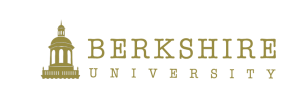Associate of Science degree in Respiratory Therapy
Associate of Science degree in Respiratory Therapy prepares students for employment as respiratory therapists under the supervision of licensed physicians. A Respiratory Therapist provides education, diagnostic testing and respiratory therapy in the management of conditions such as chronic obstructive pulmonary disease, acute cardio-respiratory failure, asthma, and other pulmonary pathologies. Successful completion of the program qualifies graduates to receive an Associate of Science degree, and become eligible to sit for the national accreditation exams for the designation of the Registered Respiratory Therapist (RRT) and apply for state license as a respiratory therapist. The national examinations consist of the Therapist Multiple-Choice Examination (TCM) and the Clinical Simulation Examination(CSE) offered by the National Board of Respiratory Care (NBRC). Information on the exam process is available through the NBRC
Responsibilities of a respiratory therapist include:
Identifying lung and breathing disorders and recommending treatment methods.
Interviewing patients and doing chest physical exams to determine what kind of therapy is best for their condition.
Consulting with physicians to recommend a change in therapy, based on patient evaluation.
Analyzing breath, tissue, and blood specimens to determine levels of oxygen and other gases.
Managing ventilators and artificial airway devices for patients who can’t breathe normally on their own.
Responding to Code Blue or other urgent calls for care.
Educating patients and families about lung disease so they can maximize their recovery.
Program Objectives
To prepare graduates with demonstrated competence in cognitive (knowledge), psychomotor (skills), and affective (behavior) learning domains of respiratory care practice as performed by registered respiratory therapists (RRT’s).
Programmatic Outcomes Data ( Published by the Commission on Accreditation for Respiratory Care )
Outcomes data from the 2011 Annual Report of Current Status has been posted on the CoARC website. Follow this link directly to the Programmatic Outcomes Data
Objectives
The following objectives are designed to meet BSU Respiratory Therapy Program’s mission and goals:
To provide an environment in which students demonstrate ethical behaviors, critical thinking skills and a commitment to lifelong learning.
Development of clinical skills, treatment techniques, understanding of methodology, and rationale for implementation and interpretation of diagnostics and cardio-respiratory care.
To provide the students with an academic foundation to adequately fulfill the role of a respiratory care practitioner in a clinical setting.
Program Goals
To prepare graduates with demonstrated competence in cognitive (knowledge), psychomotor (skills), and affective (behavior) learning domains of respiratory care practice as performed by registered respiratory therapists (RRT’s).
Prerequisites for Major Courses
Background check and drug screening.
Completion of prerequisites BSC2085C and BSC2086C, Human Anatomy and Physiology I and II with a minimum of a “B” in each course.
Completion of the following prerequisite courses: MCB2000C and CHEM2045/L and all general education coursework with a minimum grade of “C” for each course.
Cumulative grade average of 3.0 on a scale of 4.0
Program Outline
To receive an Associate of Science degree in Respiratory Therapy, students must earn 88.0 credit hours. Each course in the Respiratory Therapy major is a prerequisite for the subsequent course and must be completed with a grade of “C” or higher in order to progress to the next course in the sequence. Students must complete all courses in the program core. Requirements are as follows:
| Respiratory Therapy Major Courses ( 51.0 credit hours total ) | |
| Respiratory Therapy Fundamentals | 4.0 credit hours |
| Respiratory Therapy Theory | 4.0 credit hours |
| Clinical Respiratory Medicine | 4.0 credit hours |
| Pharmacology for Respiratory Care | 4.0 credit hours |
| Clinical Practicum I | 3.0 credit hours |
| Diagnostic Procedures in Respiratory Care | 4.0 credit hours |
| Intensive Respiratory Care | 4.0 credit hours |
| Clinical Practicum II | 3.0 credit hours |
| Pediatric and Neonatal Respiratory Therapy | 4.0 credit hours |
| Clinical Practicum III | 3.0 credit hours |
| Special Topics in Respiratory Therapy | 4.0 credit hours |
| Clinical Practicum IV | 3.0 credit hours |
| Clinical Practicum V | 3.0 credit hours |
| Respiratory Therapy Management | 4.0 credit hours |
General Education Courses ( 37.0 credit hours )
Note: To view the PDF file linked above you will need to have Adobe Reader. To download a free copy of this software click here or go to the Adobe website at www.berkshireuniversity.us
* An Associate of Science Degree is considered a terminal degree and is not transferable.



